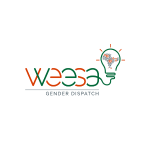

Women’s Economic Empowerment in South Asia (Hosted by SAR GIL)
Tags
- Women’s Groups (20)
- Gender-based Violence (17)
- Implementation Completion Report (ICR) (15)
- Measurement (10)
- Leadership (18)
- Afghanistan (13)
- Social Norms (8)
- Infographics (9)
- Transportation (10)
- Green Transition (6)
- Toolkits (10)
- Pakistan (17)
- Energy (10)
- Jobs (43)
- Self-help Groups (12)
- Infrastructure (7)
- Agriculture (12)
- Social Protection (12)
- Digital Inclusion (16)
- Nepal (7)
- Private Sector (14)
- Care Economy (10)
- Agency and Self-efficacy (4)
- Bhutan (2)
- Sri Lanka (5)
- Podcast (17)
- Operational Documents (20)
- India (23)
- Assets and Resources (14)
- Bangladesh (19)
- Maldives (1)
- Climate Change (18)
- Entrepreneurship (19)
- Financial Inclusion (10)
- Policies and Legislation (14)
- Male Engagement (7)
- Gender Budgeting (7)
- Implementation Completion Report Review (ICRR) (5)
- Education and Skills (22)
Documents
Who are the victims of low-carbon transitions? Towards a political ecology of climate change mitigation (2021)
Grounded in an expert guided literature review of 198 studies and their corresponding 332 case studies, this article assesses the linkages between low carbon transitions—including renewable electricity, biofuel, nuclear power,
Maladaptation: When Adaptation to Climate Change Goes Very Wrong (2020)
Adapting to climate change is necessary, but planning adaptation is an exercise in uncertainty which builds on imperfect information. Many adaptation strategies fail, and some go even create conditions that
Navigating the Continuum between Adaptation and Maladaptation (2023)
While adaptation is increasing across all sectors globally, the effectiveness is inadequate and examples of maladaptation are increasing. To reduce the risk of maladaptation, the authors propose the framework: Navigating
South Asia Development Update: Jobs for Resilience (2024)
South Asia is expected to continue to be the fastest-growing emerging market and developing economy (EMDE) region over the next two years. However, growth in the near-term is more reliant
Women’s Empowerment, Gender Budgeting, and Intersection with Climate Change (2023)
Gender inequality carries significant economic costs by keeping women from realizing their full potential. Moreover, climate change threatens to exacerbate gender inequalities around the world further as women tend to
Gender-Response Climate Governance and the Role of Women Leaders (2024)
This study explores the intersection between climate governance and gender diversity and inclusion (gender D&I) in companies based in emerging markets and developing economies (EMDEs). It is designed to enhance the
Gender-Inclusive Legislative Framework and Laws to Strengthen Women’s Resilience to Climate Change and Disasters (2021)
Globally, women are disproportionately impacted by climate change and disasters due to gender inequalities and limited opportunities to participate in decision-making processes. The report provides a conceptual framework and good
Placing Gender Equality at the Center of Climate Action (2023)
Focusing on the intersection of gender equality and climate change, this World Bank Gender Group policy note stresses the importance of empowering women and their leadership in climate action and addressing systemic
Gender-Smart Agriculture: The Only Way Forward for Women and Climate (2022)
Despite being a significant percentage of the world’s farmers, women face major gaps in capturing the benefits of climate-smart agriculture – leading to gender gaps in productivity (and greater food
Gender-Smart Climate Finance Is Critical for Progress, Results, and Impact (2023)
The interlinkages between climate change and social inclusion cannot be addressed sequentially, nor in isolation. This blog makes the case for investing in financing tools that can drive climate impact and greater